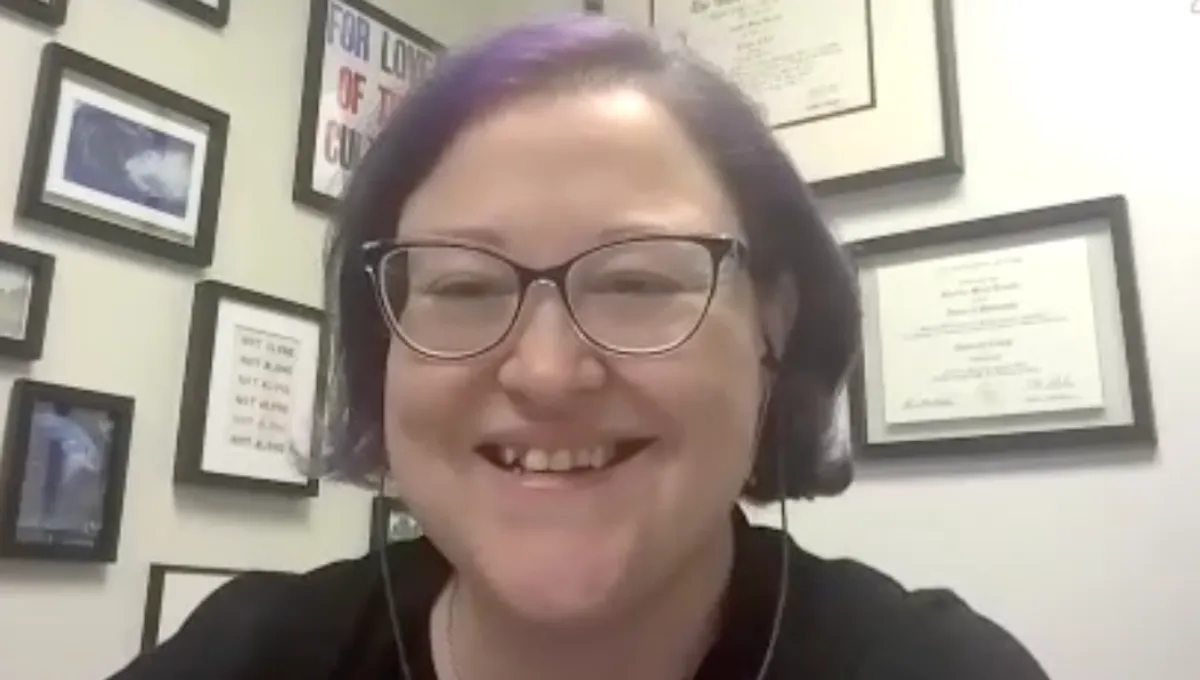Jennifer Trivedi, Assistant Professor of Anthropology is Core Faculty at University of Delaware's Disaster Research Center. She studies "the people part of disasters. How people make decisions before, during and after a disaster and what influences those decisions - their personal histories and circumstances as well as larger social and cultural contexts they find themselves in." She spoke with us recently. Here are edited excerpts from our conversation.
Perci: In your book Mississippi After Katrina: Disaster Recovery and Reconstruction on the Gulf Coast you explore the pre-disaster context that shaped the recovery of the people and the city of Biloxi. What did you learn from this work and what can other communities learn form it?
Jennifer: The most important realization from this work was that the impact of Katrina in Biloxi was not something that started quickly and then went away quickly. Talking to people I learnt that their decisions on what to do as Katrina approached was driven by their lived experiences. It was a process that people linked back to their own memories of previous hurricanes, to family stories and local stories about how their neighborhood had been affected by previous storms. This shaped their decisions not only before Katrina made landfall, but also then in the recovery process.
It was striking how a lot of people weren't just making decisions for themselves. They were making decisions as families. They were making decisions with community groups that they were a part of. They were making decisions tied to their neighborhoods, tied to church groups, tied to social groups. And so this disaster preparation and recovery was sort of collaborative for a lot of people in a lot of ways. And thinking about that larger context it is important to note this web of intermingled factors where people were not making these sorts of decisions in isolation. It's really tied back into their personal and collective spaces and memories that can go back decades. And this really starts to affect their future and their future generations as well.
Perci: Can you expand into this web of players that were influencing people's decisions? Who were they talking to make a disaster related decision?
Jennifer: People were making decisions with a family member or a friend. And sometimes those family members were in Biloxi and also being affected. Sometimes family members lived further away. Maybe a friend who lived in another city that they were going to evacuate to. Sometimes it was somebody who lived in a neighborhood that was nearby but slightly further inland that they might evacuate to. Sometimes it was someone trying to get a family member who lived closer to the water to evacuate with them. And sometimes it was people making collective decisions to stay or decide who was going to stay and who was going to leave. Some family members would leave with young children, some family members would stay to clean up. Sometimes this was friend networks. So if someone was single and didn't have a lot of family members in the area they might be making these decisions and having these conversations with co workers or with neighbors or with friends from church or in a social club. So nobody I talked to was really making these decisions entirely alone. They were having lots of conversations with lots of other people in different capacities.
Perci: What were these conversations about? Only about evacuation vs staying put?
Jennifer: Evacuating or not was a really big decision. But within that there were lots of smaller decisions. For example, who evacuate with you or who stays. If you are going to evacuate, where are you going to go? Do you have someone who lives outside the affected area that you can go stay with? And if not, do you have to find a hotel? If you're not going to evacuate, will you stay in your home? Are you going to go to a local shelter? Or are you going to go stay with a group somewhere other than your home? Or maybe you are inland and other people will come stay at your home?
And what sort of resources do you need for all of those scenarios? What things do you need to have with you whether you're leaving or staying by yourself or with other people? Are you going to rearrange important things in your house? People can't take everything with them. Can they put things up on a higher shelf so if water does gets into the house, they're somewhat protected. So many many smaller decisions leading into those sort of larger decisions, regardless of what that larger decision ended up being.
Perci: What was different about families deciding to evacuate or stay put?
Jennifer: Evacuating is expensive. It can cost a lot of money to fill your car with gas, stay on the road for a while, especially if you don't have friends and family members outside of evacuation. So if you're talking about going to stay in a hotel for several nights, it can get quite costly quite quickly. And so for some people that was just outside of their budget. Some people compensated for that by pooling resources. I saw friends or extended families working together. One person individually may not have all the resources to evacuate, but 10 people together do. Similarly for staying put together. So it's often people taking care of each other.
Perci: What did you find about post-Katrina recovery in Biloxi?
Jennifer: Recovery after a disaster, especially after a major disaster like Katrina, is a long and arduous journey. The media covers disasters when they pop up and die down. And some tend to assume recovery has happened. Whereas in reality on the ground is that it is a much slower going process. Early on it is the immediate aftermath that relates to the kind of resources being distributed on the ground and how that's working. For long term - months, and years after the disaster, from streets being rebuilt to residential and commercial neighborhoods recovering there is lot of uncertainty. And ups and downs.
The really impressive thing I saw in Biloxi was that in a lot of neighborhoods, especially the hardest hit neighborhoods, neighborhoods that didn't have as many financial resources, when people on the ground said we're going to do this, we're going to work together - those neighborhoods had better chances of recovery. So lots of small groups, non-profits, church and social groups either repurposed their mission or emerged with the mission to work towards rebuilding their communities. For a lot of people it was driven by - this is my home and I want to rebuild it. But it still took many years. Decades in fact.
Perci: Wow. This has been quite an enlightening conversation. Thank you for taking the time to speak with us.
Jennifer: You are welcome!



